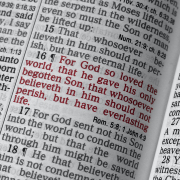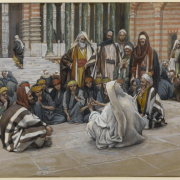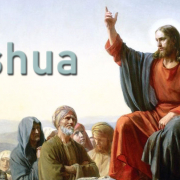What Does Messiah Mean?
When you start more about Jesus, you will almost certainly run across the term “Messiah.” Most of the time, this word will be used in reference to Jesus as a title or as a description of who he is. This word holds great value throughout the Bible, and it is no small matter to call someone by this name. But what does it actually mean, and why would we apply it to Jesus?
Messiah comes from the Hebrew word mashiach (מָשִׁיחַ) which means “anointed one.” Its Greek equivalent is christos (χριστός), from which we get the word “Christ.” Anointing was common among the ancient Hebrews, and it literally means to pour or smear oil on someone. This “anointing” could be done for a variety of reasons and usually had a significant event attached to it. High priests were anointed (Exodus 29:29), sacred things were anointed (Exodus 30:26), the dead were anointed (Mark 14:8; Luke 23:56), kings were anointed (1 Samuel 16:13; 2 Samuel 2:4), and prophets were anointed (1 Kings 19:16; 1 Chronicles 16:22; Psalm 105:15). Essentially, anointing people or objects means to make them holy. For kings, anointing was the equivalent of being crowned.1 It is not uncommon for the Bible to refer to a king or a priest as an “anointed one.”
The noun Messiah, however, when used regarding the ancient hope of Israel’s Redeemer and when applied to Yeshua, has a more profound meaning. It still means “anointed one,” but it carries with it more significance. In the first half of the Bible, God, through his prophets, predicted an “anointed one” or “Messiah” that would come to fulfill a host of prophecies and predictions in the Old Testament. The expected Messiah would take on the roles of prophet, priest, and king, the so-called anointed offices within the ancient Israelite governmental and religious structure. The promised Messiah would combine these roles in one person to lead the Jewish people in what can only be called a theocracy—a nation under the rule of God himself.
Yeshua fulfilled these offices as he was anointed by God to be a prophet (speaking for God), a king (ruling for God), and a priest (interceding on man’s behalf before a holy and righteous God). It is for these reasons that we call him our Messiah.




 Public Domain
Public Domain


